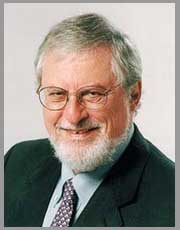Sherman Leonard Syme, PhD
Born: 1932

Len Syme became a pioneer in CVD epidemiology by taking an early focus on psychosocial characteristics associated with CVD, including social stress and social supports.
He was educated at UCLA and got his PhD at Yale in 1957, and served in the USPHS and the Heart Disease Control Program until 1968 in San Francisco and then at NIH. He headed the Department of Epidemiology at UC Berkeley from 1975 to 1980. He was active in analyses of the NIHONSAN study and developed collaborations at York University, Teikyo University, St. Thomas and the University of London, as well as being a long term consultant to WHO.
Syme worked with Stallones in 1960-61 in development of the NIHONSAN study, which was based on the basic question of the role of habitual diet in coronary disease and compared Japanese in Japan and migrants to Hawaii and California. He produced the early analyses and much of his future work was based on his inability in that study to account for the large differences in CVD risk, holding other factors constant. Much of the subsequent work on social factors in CVD by him and his mentee Michael Marmot was thus inspired. He also was central to organizing a seminal conference on Social Stress and Cardiovascular Disease in 1966 that involved most of the current and future leaders in that area.
Syme was also a stimulus to the prospective study of a cohort classified by the Rosenman-Friedman Type A-B Personality Profile, the Western Collaborative Study.
While on assignment for NIH in the 1970s he became Executive Secretary of the Human Ecology Study Section where he was able to support many studies, including the Evans County study, and to recruit leaders to the field, including John Cassel and Al Tyroler. He spent some years attempting to strengthen the health behavior strategy of the Multiple Risk Factor Intervention Trial. He remains a devotee of the idea that much of the risk of coronary disease remains unexplained and probably lies in the psychosocial realm. He summarizes these views in an interview:
“I think the research we’ve been doing in population health has shown that the psychosocial factors act most importantly by influencing the body’s vulnerability [that is] of people getting sick by changing the immune function, not introducing this or that disease. I think what disease you get is a function of the specific risk factors you have – the cholesterols, the blood pressures, the viruses. So that would explain why the psychosocial factors are related not just to this disease but to a lot of diseases and why the risk factors we know are important are not critically correlated with disease occurrence. This is an idea that John Cassel talked about in the 1976 paper. None of this is new, but I think it’s becoming more clearly understood” (Syme 2003). (HB)
Sources
Marquis Who’s Who on the Web. ‘Sherman Leonard Syme. Available from: http://search.marquiswhoswho.com/executable/SearchResults.aspx?db=E
[Accessed 18 December 2006].
Sherman Leonard Syme, in an interview recorded by Darwin Labarthe, 21 August 2003, Berkeley, CA. History of Cardiovascular Epidemiology Collection, University of Minnesota.